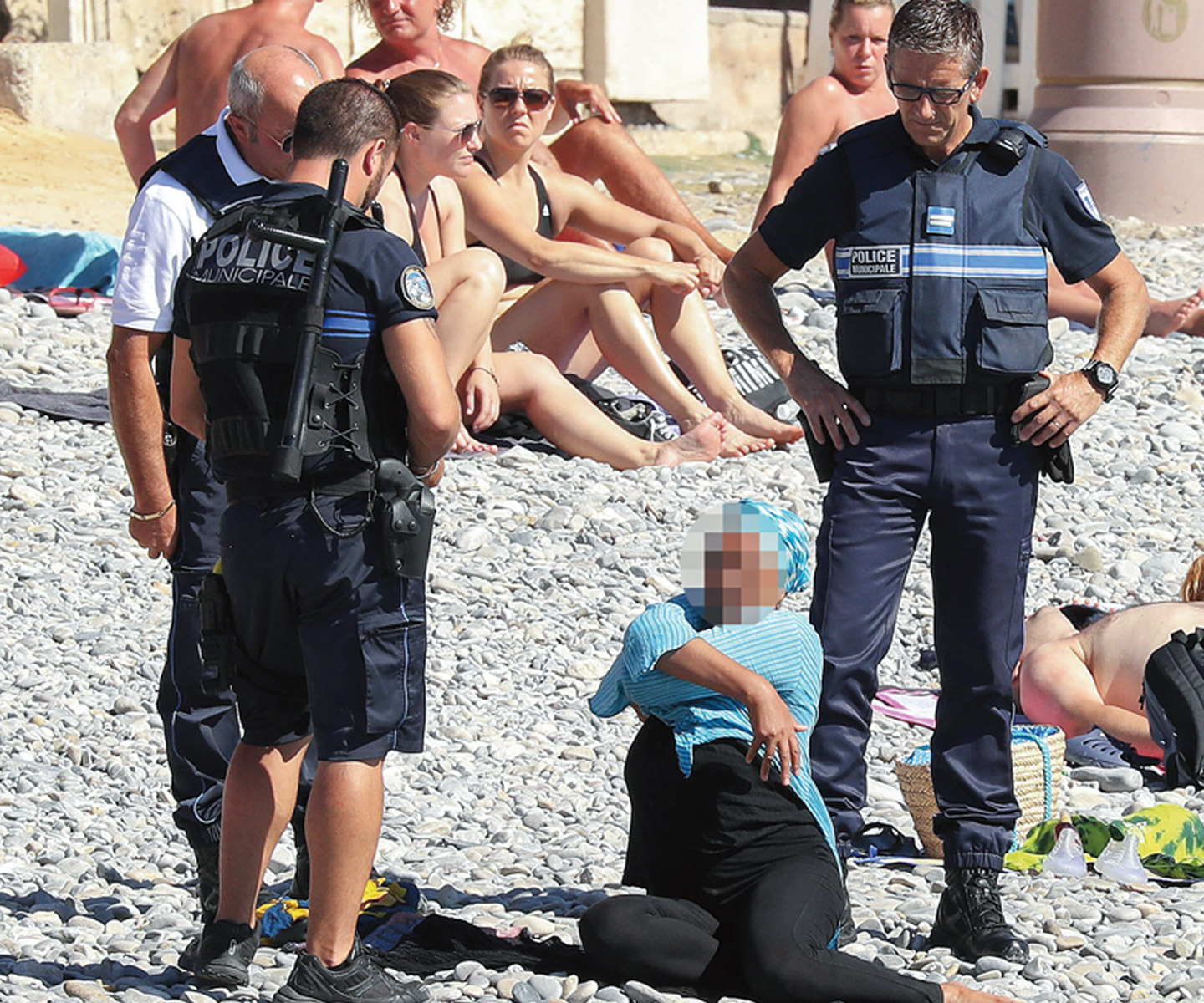The shocking scenes this summer quickly went viral: Armed police officers on French beaches surrounding Muslim women and ordering them to either remove their body-concealing clothes or leave the beach.
The police were acting on new laws that have been interpreted as bans on a type of Muslim bathing suit called the “burkini.” Coined by its inventor, the word combines burqa—a traditional head-to-toe cloak some Muslim women wear for modesty—with bikini. But the term can refer to any Muslim coverings women wear on the beach.
Following a series of terrorist attacks in France carried out by the Islamic State (ISIS), about 30 French seaside towns banned any kind of religious clothing from their beaches. Though the bans don’t refer specifically to burkinis, that’s how they’ve been enforced. Supporters of the bans see them as a defense of French culture and values, and women’s rights; to some French, the burkini is a symbol of women’s subservience in Muslim culture.
French Prime Minister Manuel Valls, who supports the bans, says the burkini is part of “the enslavement of women” and that it’s “not compatible with the values of France.”

